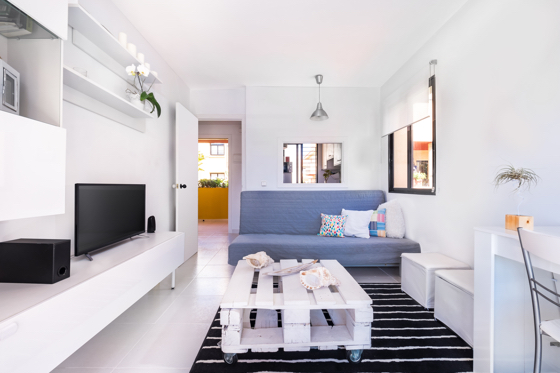The popularity of the short-term rental market was sealed when Airbnb listed with a valuation of US$47 billion. The market is now maturing and becoming more nuanced and demand is surging for aspirational, self-catering products which deliver the lifestyle of a boutique hotel with the freedom of your own home. As the product transitions from traditional self-catering accommodation to an offering that blends lifestyle, quality and experience, the supply pool narrows, leaving high investor demand for those that can lean into the rising trend for authentic experiences and high-quality properties.
Contributed by Ben Harper, group managing director, Watergate Bay Hotel, Beach Retreats and Another Place, Cornwall, England, and Andrew Easton, managing director, Beach Retreats, Devon, England
Leisure-driven outdoor offerings have attracted increased investment in the past 18 months, driving the largest deals in the hospitality sector, with the acquisition of seven Center Parcs Europe holiday parks by Aroundtown for close to €1 billion, KKR buying Roompot for €1 billion, InfraVia Capital Partners picking up Sandaya for an undisclosed fee and Vacasa’s purchase of TurnKey Vacation Rentals.
Historically, this segment has suffered from an unsophisticated and homespun reputation but as the above demonstrates, that is the past and now on to the future.
In this article, we consider five reasons investors should consider short-term rentals.
1. Resilient sector with positive growth outlook
Consumer demand for high-quality self-catering has been booming since before the pandemic and has strong long-term prospects as the guest’s desire for independence continues. The success of the urban serviced-apartment model provision for business travelers is translating into a leisure offering for a wide range of guests.
In the immediate short term, the ongoing uncertainty and restrictions around international travel are likely to mean travelers look to domestic accommodation options for security and reliability. There is also strong evidence to suggest that globally people remain more comfortable with drive-to and fly-to destinations.
Although the pandemic has bought short-term rentals into the spotlight, they were gathering investor interested long before COVID. In 2018, Csongor Csukás, head of international property management at BNP Paribas Real Estate, announced an agreement with a professional homestay management company to offer a model for residential assets in Europe that mixed long-, medium- and short-term leases in a flexible way to optimize returns. “We observe significant interest among major real estate investors in the residential sector, as well as fast-growing trends in consumers’ preferences such as nomadism, co-living, extra services and tailor-made user experience. Residential letting and property management is an extremely atomized sector with a clear opportunity for professional managers due to the lack of transparency and efficient management models.”
2. Lack of supply
The lack of supply, or more specifically supply of a consistent quality, remains elusive in this segment of the industry. This presents an opportunity.
Airbnb has educated the modern consumer to think beyond traditional hotels and now consumers are seeking accommodation that delivers high quality, provides flexibility – you can decide not to go to a restaurant but to the supermarket for a bottle of wine and a pizza – enables you to feel part of a community and guarantees high standards of hygiene and cleanliness.
Brands that can create and consistently deliver this are ripe for growth and more than piquing the interest of investors.

3. Low operational and distribution costs
In a similar fashion to the urban aparthotel concept, light-touch (and therefore low cost) operations, technology-led guest communications and aspirational interior design are common characteristics of the short-term rental model.
Low distribution costs driven largely by direct bookings through a strong and reputable brand are attractive to investors.
4. High rates
High rates can be commanded due to lifestyle positioning, an aspirational brand, desirable location and good quality fixtures and fittings.
For consumers, the convenience of being part of a destination and therefore local activities, eating, drinking and entertainment easily accessible translate to being able to market properties at a higher rate.
5. High occupancy and attractive cashflow
Targeted and intelligent multi-segment marketing can deliver year-round revenues for investors.
Demand is no longer just generated from the family market. Travelers across a range of demographics are experiencing and enjoying short-term rentals. As restrictions ease and families reunite, they will likely opt to do this in an environment that can accommodate large groups with hygiene standards they can control.
As a more flexible approach to working from home becomes routine and the corporate market looks for locations to unite teams, year-round demand is created.
Investors have shown enthusiasm for this flexible business model, proven to be resilient and withstand volatility in the marketplace, and underpinned by strong management. While the naming convention is inconsistent, including but not limited to: aparthotels, vacation rentals, self-catering, short-term rentals and holiday lets, the investor interest is anything but.
